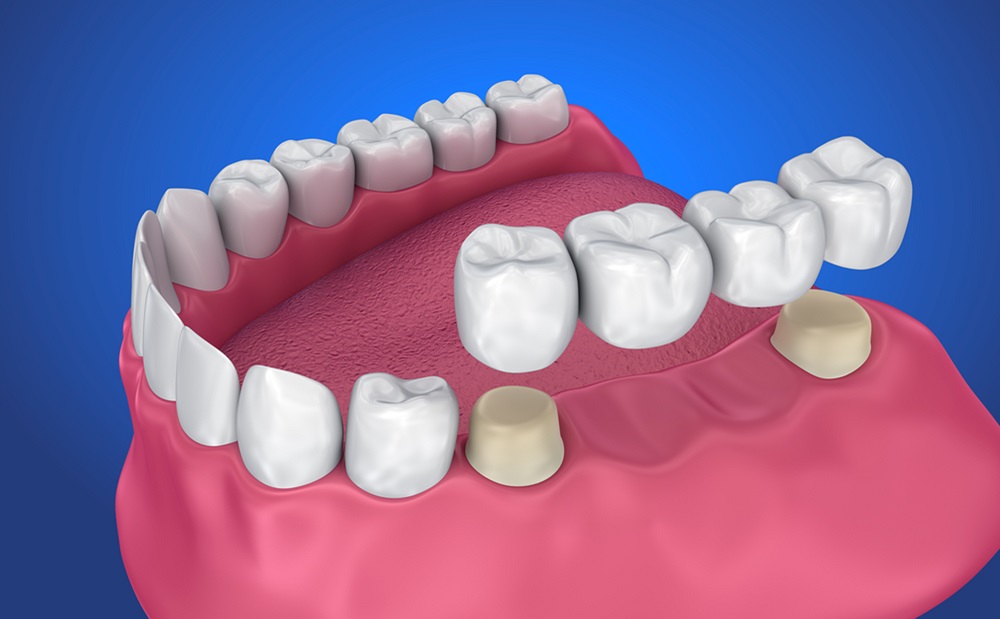A dental bridge is one option for replacing one or more missing teeth. If you have missing teeth, then you may be considering getting a dental bridge. In this blog post, our team at Montreux Dental Clinic tells you all you need to know about dental bridges near you so that you can determine if this dental restoration is right for you.
What is a Dental Bridge?
There are many types of dental bridges, but all of them share similar characteristics. In all dental bridges, a replacement tooth, called a pontic, provides a chewing surface and is connected to the gum line using various structures such as dental crowns and metal clasps.
All dental bridges need the support of adjacent structures, and the pontic does not puncture the gum line or jawbone but simply rests on top of them.
Kinds of Dental Bridges
As mentioned above, there are many different types of dental bridges in Aspen. Here are the most common:
#1 Traditional Dental Bridges
This is the most common type of dental bridge. Traditional dental bridges use dental crowns to cover the neighbouring teeth and anchor the pontic in the mouth. Traditional dental bridges can replace up to three teeth at once, and our dentist near you can customize them to match your natural teeth so that they blend seamlessly in with your smile. To get a traditional dental bridge, the neighbouring teeth on each side of the gap left behind by the missing tooth must be healthy enough to support dental crowns and the pontic.
#2 Cantilever Dental Bridges
These are very similar to traditional bridges, but they only use one dental crown as an anchor. This means that these are ideal for replacing back teeth, where there is only one neighbouring tooth available for a dental crown. However, since they only use one tooth for an anchor, they are not as durable as traditional dental bridges typically are.
#3 Maryland Dental Bridges
A Maryland bridge is the most conservative option when it comes to dental bridges. Instead of using dental crowns, these bridges use metal wings to attach to neighboring teeth. This means that the remaining natural teeth on each side of the gap created by the missing tooth do not need to be altered, and they can remain in good condition for years to come. The metal clasps can be discreetly hidden behind teeth, so the bridge will not be obvious in your mouth.
#4 Implant-Supported Dental Bridges
These are the most permanent form of dental bridges and rely on dental implant posts as anchors rather than dental crowns attached to abutment teeth. This means once again that your remaining natural teeth are preserved. Implant-supported bridges take a long time to place, but they are secure in the mouth and stimulate jaw bone development once healed. These are also the most expensive of dental bridges, but most people find them well worth the time and money.
Interested in Dental Bridges?
If you would like to learn more about dental bridges and determine which bridge is best for you, don’t hesitate to get in touch with our dentist in Aspen. At Montreux Dental Clinic, we are happy to offer our patients dental bridges to restore their oral health and boost their confidence. Please do not hesitate to book your consultation today!

